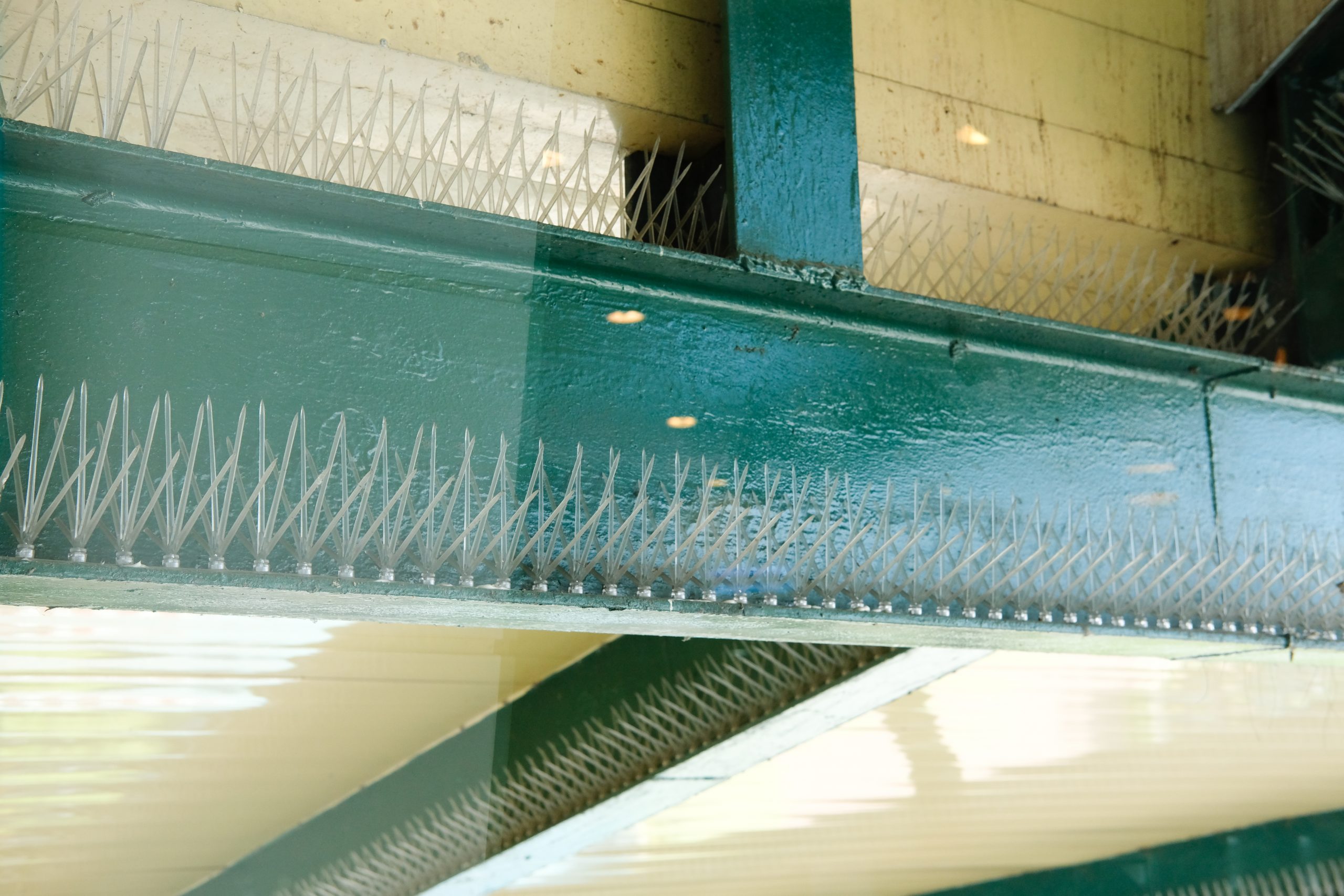While repellents and traps can be used to discourage birds from an area, exclusion methods are the most reliable way to remove birds and prevent them from coming back. Exclusion involves physically blocking birds from accessing structures where they roost or nest. When performed by experts, exclusion techniques ensure humane and permanent bird removal.
How Exclusion Works
First, professionals inspect structures to identify entry points birds are using, such as:
- Gaps and holes
- Open wall cavities
- Spaces between roof tiles
- Open chimneys
- Vents and pipes
- Fascias and eaves
Then, they then seal off these access points using materials tailored for the application:
- Wire mesh
- Sheet metal
- Netting
- Foam
- Silicone caulk
- One-way doors and v-tracks
Exclusion Materials and Techniques
Wire Mesh & Metal
Sheet metal and wire mesh are installed over larger openings. They are cut to fit precisely and secured with fasteners.
Netting
In addition, netting is stretched taut and anchored over areas to block bird paths. It comes in different thicknesses to exclude certain species.
Foam
Also, expanding foam is sprayed into holes, crevices and cavities to seal gaps where birds nest and roost. It fully hardens and adheres tightly.
One-Way Doors & V-Tracks
Sliding doors allow birds to leave but not reenter, while V-tracks on ledges physically block birds from landing.
In summary, exclusion bird removal is the most effective method for resolving a bird problem permanently. Repellants only work while actively deployed, and traps just relocate birds that may return. In contrast, physically preventing birds from accessing structures where they take shelter and nest guarantees they will not come back. Reputable companies use non-lethal exclusion techniques to seal entry points tailored for each bird species and application. Once exclusion is achieved, removal is complete, and birds will naturally find new habitat elsewhere.

